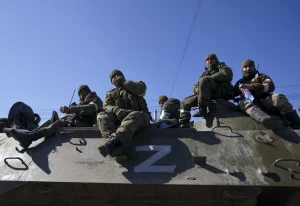
EU sanctions target financing of Russia’s battlefield products, says envoy
European Union sanctions could soon target financial institutions helping to send battlefield products to Russia and those supplying goods made in Southeast Asia by Western subsidiaries
The EU's sanctions envoy said on September 18, as reported by Reuters.
Since 2022, the EU has imposed broad sanctions on Russia due to its invasion of Ukraine. EU envoy David O'Sullivan noted that while sanctions aren't a "magic bullet," they aim to make it harder, slower, and more costly for Russia to continue its war. He admitted that tracking companies selling dual-use goods to Moscow is often like a "whack-a-mole" game.
O'Sullivan mentioned progress in reducing circumvention through Central Asian states after working with countries like Kazakhstan and Uzbekistan. However, Southeast Asia presents a bigger challenge since these countries are major producers. "A lot of the product going through China is made by subsidiaries of Western companies in Southeast Asia," he said, after visits to Vietnam, Thailand, and Malaysia.
He stressed the need to identify financial institutions involved in shipping battlefield products to Russia. "Where these are identified, these institutions will be contacted saying...if they do not desist they are at risk of being listed."
He noted that the U.S. has successfully used similar measures earlier this year and that the EU is starting to gather and compare information.
A major challenge for the EU is coordinating the implementation of its 14 sanctions packages across 27 member states. Despite their limitations, O'Sullivan believes these measures have pushed Russia into a war economy that will heavily impact its economic future in the coming years.
- The U.S. State Department imposed sanctions on companies and ships that are illegally trying to move gas from the sanctioned Russian Arctic LNG 2 project.
- News











































